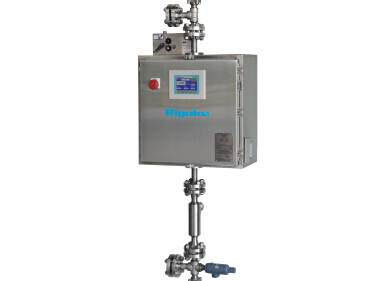Sulphur analysis
How Has the IMO Changed Emissions Regulations?
Jan 10 2020
On January 1, the International Maritime Organisation (IMO) imposed strict new emissions regulations designed to slash the industry's environmental footprint. The biggest change was a ban on the use of fuel with a sulphur content higher than 0.5%. Previously, the maximum limit on sulphur oxide content was 3.5%, which means the new regulations represent drastic reduction.
Maritime transport is a cornerstone of the global economy, with recent data from the United Nations (UN) suggesting more than 90% of traded goods are transported by sea. More than 170 countries have signed on to the fuel change, including major exporters like the United States. According to the IMO the new regulations will offer five beneficial changes, including a 77% reduction in overall sulphur oxide emissions (SOx) from ships. This translates to an annual reduction of around 8.5 million metric tonnes of SOx.
New regulations address concerns over climate change and public health
The new regulations were prompted by recommendations from a UN subcommittee, which called on the maritime industry to curb sulphur emissions. The industry has come under intense pressure to minimise its environmental footprint over the past decade, heightened by evidence suggesting maritime sulphur emissions are a major cause of acid rain. Sulphur emissions have also been flagged as a major public health issue, associated with premature deaths caused by respiratory, cardiovascular and pulmonary diseases.
While the highly anticipated change comes as no surprise, the IMO has been slammed by analysts for failing to make the right preparations and leaving the energy market in a state of uncertainty and confusion. The new regulations have also received criticism for the high costs associated with making the switch. MSC and A.P. Moller-Maersk, two of the largest shipping companies in the world, maintain complying with the new IMO regulations will incur costs of around US$2 million.
IMO expects 90% compliance
Despite the confusion and costs, experts expect compliance rates of around 90%, with vessels found in violation of the new laws running the risk of being impounded, losing insurance and being blacklisted by major ports. With so much attention focussed on the escalating climate crisis, any lines found using non-compliant fuel would also suffer a serious blow to reputation.
The maritime industry isn't the only sector in the spotlight, with aviation companies also under pressure to minimise its environmental footprint and reduce fine particle emissions. For a closer look at the latest technologies featuring Gas Chromatography with Vacuum Ultraviolet Absorption Spectroscopy Detection, don't miss 'Are you ready to fly! – Jet Fuel Analysis by GC-VUV is about to take off.'
Digital Edition
PIN 26.1 Feb/Mar 2025
March 2025
Analytical Instrumentation - Elemental Analysis for Quality and Process Control at Refineries, for Lubricants and Wear Metals in Engine Oils - Synthetic Lubricants: New Developments - Scaling...
View all digital editions
Events
Apr 08 2025 Birmingham, UK
Apr 08 2025 Kielce, Poland
Apr 08 2025 Ravenna, Italy
Apr 08 2025 Southampton, UK
Apr 08 2025 London, UK



















